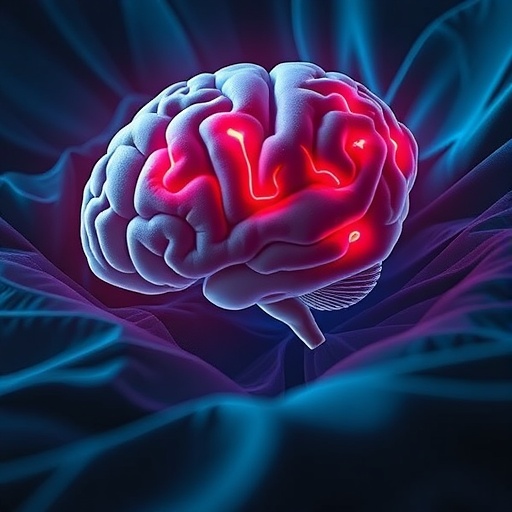New Insights Reveal Poor Sleep Accelerates Brain Aging Through Inflammation Mechanisms
In a groundbreaking study emerging from Karolinska Institutet, researchers have uncovered compelling evidence that inadequate sleep quality is linked to accelerated brain aging. This novel finding, published in the esteemed journal eBioMedicine, derives from extensive brain imaging analyses and suggests systemic inflammation as a pivotal contributory mechanism. The implications of this research are profound, shedding new light on the biological interplay between sleep health and neurological aging trajectories.
While epidemiological data have long connected poor sleep with a heightened risk for dementia, distinguishing causative factors from early symptoms has posed a significant challenge. This latest investigation advances the field by quantitatively linking specific sleep health parameters with a machine learning–derived estimate of brain biological age — an innovative approach that transcends conventional chronological metrics.
The research cohort encompassed approximately 27,500 middle-aged and elderly individuals obtained from the UK Biobank, a large-scale biomedical database with extensive MRI brain imaging records. Utilizing sophisticated algorithms, the team analyzed over 1,000 brain MRI phenotypes to predict the brains’ biological age relative to the participants’ actual chronological age, thereby unveiling disparities attributable to sleep health status.
Sleep quality was operationalized via a composite score derived from self-reported measures including chronotype (morningness-eveningness preference), total sleep duration, presence of insomnia symptoms, snoring frequency, and daytime sleepiness. Participants were stratified into three groups—healthy, intermediate, and poor—based on cumulative scores, allowing a granular assessment of how sleep attributes correlate with brain aging.
Remarkably, the results demonstrated a linear relationship: every decrement of one point in the sleep health score corresponded to an approximate six-month increase in brain age relative to chronological age. Participants categorized with poor sleep exhibited brains that appeared, on average, a full year older biologically than their chronological age would predict, indicating accelerated cortical and subcortical aging processes.
To elucidate underlying causal pathways, the investigators explored the role of low-grade systemic inflammation, a biologically plausible mediator known to influence neurodegeneration. Biomarkers indicative of inflammation accounted for just over 10 percent of the association between compromised sleep health and increased brain age, pinpointing inflammatory processes as significant but not exclusive contributors.
These findings suggest that sustained poor sleep quality may instigate or exacerbate neuroinflammatory cascades, potentially accelerating cellular senescence within neural tissues. Such inflammation-driven neurodegeneration aligns with emerging paradigms linking disrupted sleep with neuropathological hallmarks observed in Alzheimer’s disease and other dementing illnesses.
The study further discusses additional mechanistic avenues by which sleep deprivation could accelerate brain aging. One hypothesis centers on impaired glymphatic clearance during sleep—a process crucial for removal of metabolic waste products from the brain. Suboptimal sleep may diminish this clearance efficiency, leading to accumulation of neurotoxic proteins that accelerate cellular damage.
Cardiovascular health also emerges as a likely intermediary, given poor sleep’s documented adverse effects on vascular function and blood flow regulation. Impaired cerebrovascular perfusion and endothelial dysfunction can compromise nutrient delivery and waste removal in the brain, thereby hastening age-related neurodegenerative changes.
While the study leverages a robust dataset with advanced imaging and machine learning techniques, the authors caution that participants from the UK Biobank generally exhibit better overall health than the wider UK population, which could limit the generalizability of findings. Furthermore, reliance on self-reported sleep metrics introduces potential biases and underscores the need for objective sleep assessments in future research.
This investigation is notable not only for its scale but also for its interdisciplinary collaboration, involving institutions such as the Swedish School of Sport and Health Sciences, Tianjin Medical University, and Sichuan University. The research was supported by leading organizations, including the Alzheimer’s Foundation, Dementia Foundation, and Swedish Research Council, reinforcing the global commitment to unraveling the complex relationship between sleep and brain health.
Abigail Dove, the study’s lead researcher, emphasizes the modifiability of sleep behaviors and the exciting prospect that improving sleep hygiene could serve as a preventive intervention against premature brain aging and possibly cognitive decline. These insights pave the way for future clinical trials aiming to test sleep improvement as a strategy to retard biological brain aging.
In a broader context, this study underscores sleep as a critical pillar of neurological health, alongside established factors such as diet, physical activity, and mental engagement. The integration of neuroimaging biomarkers with behavioral data marks a significant advance in quantifying brain aging trajectories and identifying modifiable lifestyle factors that impact long-term brain health.
As the global population ages, understanding the mechanisms that drive accelerated brain aging is vital to mitigating the burden of neurodegenerative diseases. This research contributes a crucial piece to that puzzle by highlighting systemic inflammation as an important link between poor sleep and brain aging, offering new avenues for therapeutic exploration and public health interventions.
Ultimately, these findings accentuate the imperative to prioritize healthy sleep patterns in medical practice and public health policy, recognizing sleep not merely as rest but as an essential biological process integral to maintaining cognitive vitality and neurological integrity across the lifespan.
Subject of Research: People
Article Title: Poor sleep health is associated with older brain age: the role of systemic inflammation
News Publication Date: 1-Oct-2025
Web References: http://dx.doi.org/10.1016/j.ebiom.2025.105941
References: Yuyang Miao, Jiao Wang, Xuerui Li, Jie Guo, Maria M. Ekblom, Shireen Sindi, Qiang Zhang, Abigail Dove, eBioMedicine, online 1 October 2025, doi: 10.1016/j.ebiom.2025.105941.
Keywords: Health and medicine, Life sciences, Epidemiology, Human health, Sleep disorders, Cognitive disorders, Brain, Sleep
Tags: biological age vs chronological agebrain imaging and aging researchinadequate sleep and brain agingKarolinska Institutet sleep studymachine learning in neuroscienceMRI brain imaging analysisneurological aging trajectoriessleep health and dementia risksleep health parameterssleep quality and inflammationsystemic inflammation and brain healthUK Biobank sleep research





